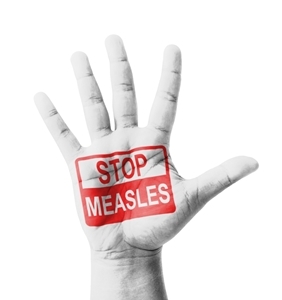One of the most dominant headlines in 2015 has to be the recent measles outbreak that began several months ago at Disneyland in Southern California. The measles has now spread to seven U.S. states and affected 147 people between Dec. 28, 2014, and April 17, 2015. According to the Centers for Disease Control and Prevention, this U.S.-based viral outbreak is similar to others that have occurred in 14 other countries over the past six months, so these trends are becoming more prevalent worldwide.
Many health experts have attributed the recent outbreak to a disdain from some individuals about childhood vaccinations. People who are opposed to vaccinations, dubbed "anti-vaxxers," have opted out of having their children receive vaccines before entering grade school, or delaying these shots. A portion of this group believes that vaccines are tied to neurological issues like autism due to a small 1998 study that has since been discredited by the medical community.
Results of the poll
However, the consensus across the U.S. is that most Americans have reassessed routine childhood vaccinations and come to the conclusion that vaccines are safe, according to a March 2015 HealthDay/Harris poll. According to a press release associated with the findings, 87 percent of individuals believed that childhood vaccines were safe, which is up 10 percent from a poll that was conducted in July 2014.
"I think the measles outbreak is causing some people to re-examine their 'facts' about childhood vaccinations," Dr. Aaron Glatt, a spokesperson for the Infectious Diseases Society of America, explained.
The HealthDay results are similar to a Pew Research Center poll released in February 2015 that indicated 83 percent of the public believes vaccines for diseases like measles, mumps and rubella are safe. However, nearly one in 10 Americans believe that these same vaccines are not safe. Many demographics and partisan groups agreed that the vaccines posed no threat. However, less educated individuals and young adults were more likely than others to say that MMR vaccines are not safe.
The skepticism of vaccinations
When the skeptics were asked why they thought vaccines were unsafe, there were a variety of responses. While some cited the aforementioned autism concerns, others simply didn't trust pharmaceutical companies, some said that it weakened immune systems and others didn't understand why a giving a virus to a healthy child helped prevent future disease.
Several celebrities and bloggers brought the anti-vaxxer movement into the limelight around a decade ago, which resulted in vaccination rates slipping across 28 states between 2006 and 2013, according to the Wall Street Journal.
Although having just 9 percent of population doubting these vaccines might seem insignificant, many people in the medical community, including those who work in travel nursing, are very concerned for one reason: The measles is a very contagious disease. According to the CDC, 90 percent of people who are not immunized will become infected if they are exposed to just one person who has it. Children in general are also very prone to spread infectious diseases, such as the chicken pox or flu, so even if a sizable minority of individuals decides to forego childhood vaccinations for measles, it has the ability to infect millions of children, many of whom are very young with vulnerable immune systems.
This is why it is important for every travel nurse to encourage parents to immunize their children and walk through the common myths surrounding the anti-vaxxer movement. Although these recent polls indicate that public sentiment is heading in the right direction, health professionals should still try to do all that they can to stop the measles outbreak and prevent childhood illnesses.

